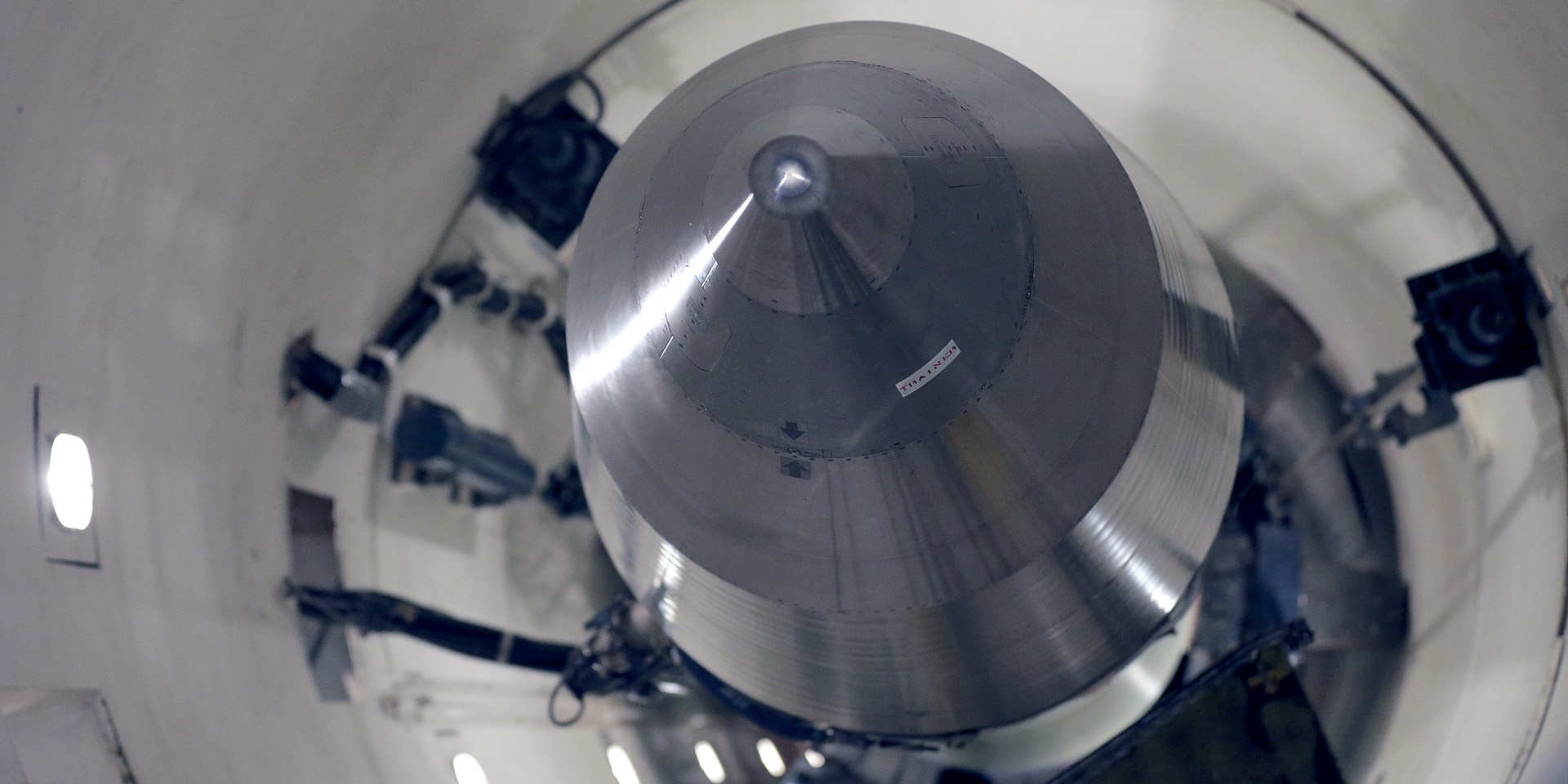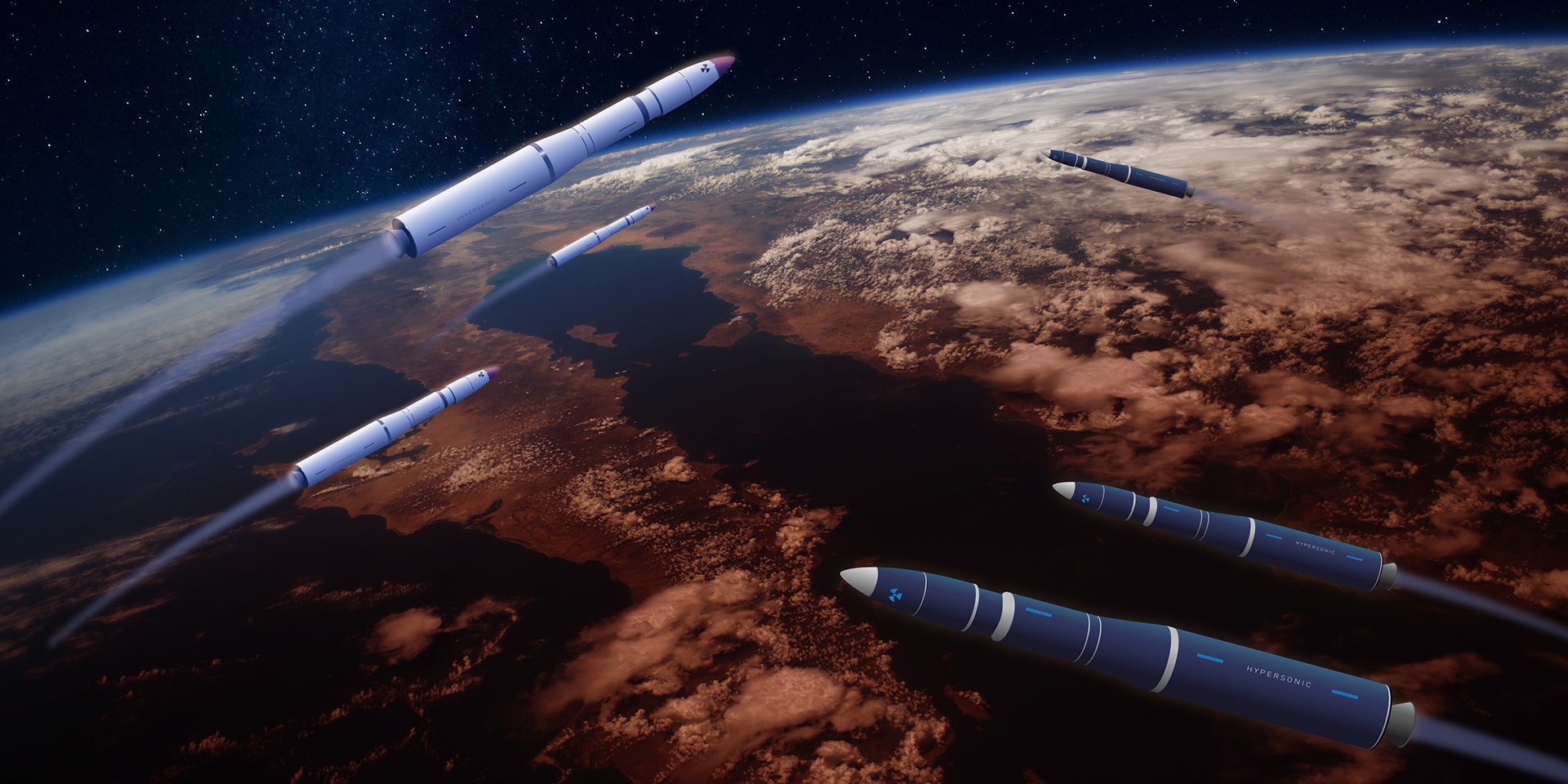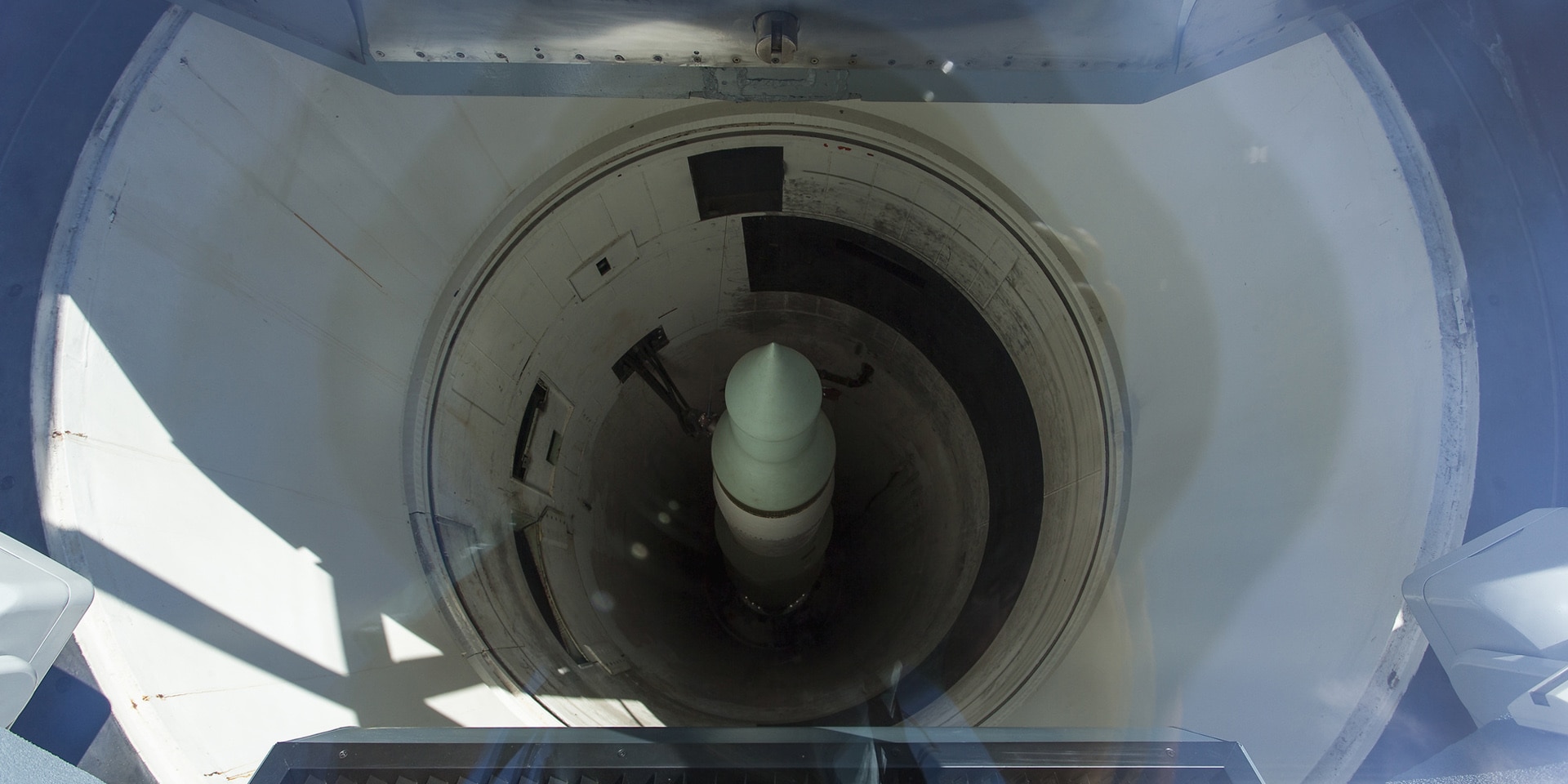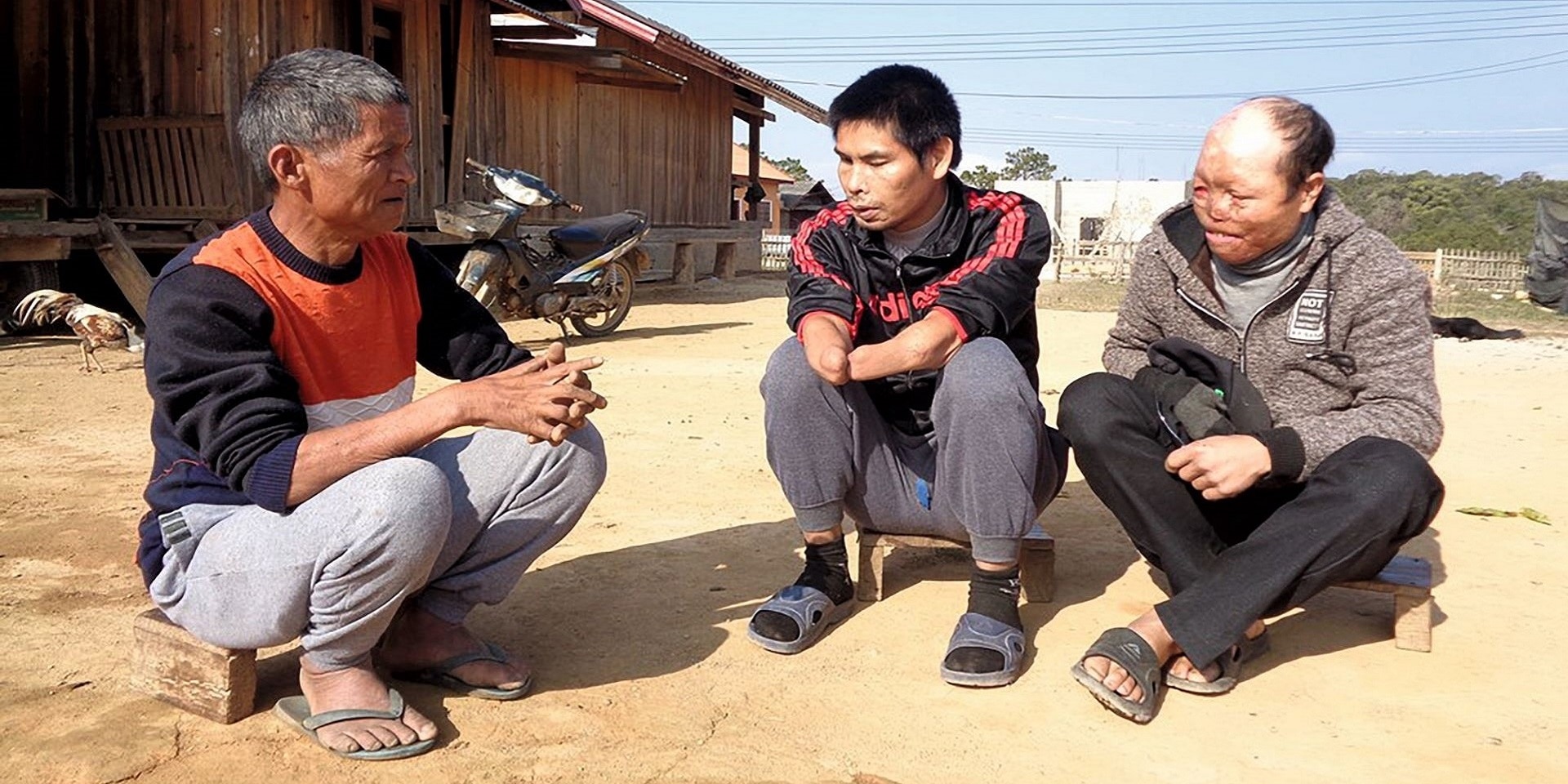Switzerland's position on the nuclear weapons ban treaty
Switzerland is taking part as an observer at the First Meeting of States Parties to the Treaty on the Prohibition of Nuclear Weapons (TPNW) in Vienna from 21 to 23 June 2022. Switzerland has not signed the treaty for several reasons, which has proved controversial. What is this decision based on?

A nuclear warhead in a missile silo ready to be launched. © Keystone
The war in Ukraine has shown the world that the risk of nuclear attack remains very real, even after the Cold War. Switzerland advocates complete nuclear disarmament in order to achieve a world without nuclear weapons. This is based on the country's humanitarian tradition – it is difficult to envisage how any use of nuclear weapons could be compatible with international humanitarian law. As we are still a long way from complete nuclear disarmament however, there needs to be new momentum in applying existing agreements.
Switzerland is taking part as an observer at the First Meeting of States Parties to the Treaty on the Prohibition of Nuclear Weapons (TPNW) in Vienna from 21 to 23 June 2022. The TPNW aims to advance disarmament by prohibiting the development, testing, production, transfer, possession, use or threat to use nuclear weapons, for example.
Lack of global support for key goals
Although disarmament is one of the TPNW's central goals, the focus on humanitarian rather than security aspects has been controversial from the start. Because of this, the world's nuclear powers and the majority of their allies have abstained from the TPNW negotiations. Neither has the treaty made any kind of impression on the global superpowers. Like most other western states, Switzerland has not signed the TPNW. This has proved controversial and is based on a number of factors.
- The treaty, which came into force in 2021, envisages a total ban on nuclear weapons – the added value of which in terms of complete disarmament is yet to be clarified. The TPNW has been ratified by 61 countries to date, most from the southern hemisphere. Hardly any western states have ratified the treaty, including Switzerland, Sweden and Finland, which only take part as observer states.
- In contrast, the 1968 Treaty on the Non-Proliferation of Nuclear Weapons (NPT) is much more broad-based. It has 191 member states including several major nuclear powers – China, France, Russia, the UK and the US. It does not ban nuclear weapons like the TPNW, but obliges signatories to ensure non-proliferation and the peaceful use of nuclear technology. The NPT is the cornerstone of the global security architecture.
- It is still unclear as to whether the TPNW can actually advance nuclear disarmament, or what impact it will have on the NPT. Switzerland considers it counterproductive if the NPT process is complicated by the TPNW, which has established a tougher standard but with less global support.
Federal Council to decide on TPNW in early 2023
The war in Ukraine has highlighted how important it is to thoroughly examine Switzerland's potential accession to the TPNW. In addition, any positive impact on disarmament or repercussions for the NPT process must be clarified. Switzerland's participation at the TPNW conference in Vienna, which will include the issue of complementarity with the existing NPT regime, will also be germane to the discussion in Switzerland. Another key element will be the NPT Review Conference in August 2022, which will address to what extent the TPNW is impacting on the NPT. The Federal Council will then decide in early 2023 whether or not to ratify the TPNW, based on a report drawn up by the Federal Administration.



